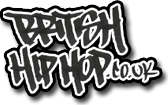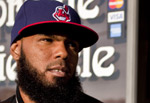There is a new breed of emcee coming out of America. For those of us who came up listening to Black Moon, Black Sheep and Black Star, Mad Stalley represents the return of dope lyricism with a fresh twist. Not instantly comparable to other artists, he has the intelligence and flow of a Jay Electronica or a J-Live and a Freeway style beard.
I caught up with the man to discuss his life, career and hip-hop generally and found him to be a very well spoken and intelligent individual with a great outlook on the global scene…
Who is Stalley?
Stalley: Greetings, I am Stalley. I come from Massillon, Ohio which is a small city in Ohio outside of Cleveland, 45 minutes to an hour outside of Cleveland. Its a pretty blue collar, hardworking, steel factory town built on high school sports, high school football is really big, and that’s just me, that’s what really reflects in my music too. I’m really a hardworking, everyday type of guy, who just comes from an everyday type of city. Like pretty much the heart of it all that keeps the whole country moving you know.
Any other emcees in Massillon?
Stalley: There’s no other rappers in Massillon…. unfortunately. We trying to get some of these guys out I mean, hopefully I’ll be able to inspire and encourage some other younger guys that’s tryna rap or some of the guys my age that are trying to rap that really do it. It’s hard to really feel like you can do anything where I’m from also. That’s just the way they train you, they make you feel like either you’re playing basketball or sports, football, or you go to work in the factories. So there’s no a lot of hope for us. Out of Ohio you have Kid Cudi, Bone Thugs, Ray Cash…
How did you make your links being in a separate city from the scene?
Stalley: You know, I basically moved out. I used to play basketball. I injured myself and then I transferred schools which was to here in Brooklyn, New York. I injured myself again and after that I stopped focusing on basketball and school as much and started going into music. Music has always been a passion and love of mine. I never really wrote songs or structured music until two years ago when I put out Goin Ape which was the first mixtape I did with Terry Urban and Mick Boogie and since then I’ve just really been doing music. The links that I got was just me being here hustling and interacting with different folks and just trying to get my name and my music out there. I’ve been blessed with catching the attention of big people like Ski Beatz, Dame Dash, Mos Def. Those are some of the names of the bigger artists that have taken a liking to me and my music.
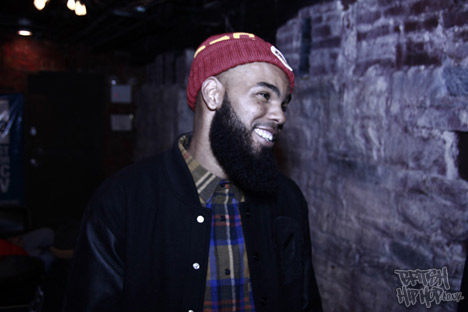
Why do you think they can relate to you as an emcee?
Stalley: I think it’s because its something fresh, something new. A lot of people tell me I don’t really sound like anyone. I pride myself on not really sounding like anyone and not really creating any type of music that people have heard before. I think they just appreciate the realness in the music. I really focus on just being me and representing where I come from, things that I’ve seen and been through and most people can relate to that. They always say the cliches – real recognise real, but it’s true, when you’re just being you and not have any type of facade…
You put a bit more depth into it, some education.
Stalley: Definitely. I pride myself on education and listening. When I was growing up, I was that kid who was 10, 12 years old hanging around 24 year olds. And I wouldn’t really talk much, I’d just listen and soak up game and learn from their experiences.
What era was it when you were getting into hip-hop?
Stalley: It was probably the mid 90s, around 94-95 when Illmatic came out, Ready to Die, Stakes is High by De La Soul. I remember listening to the Equinox by Organized Konfusion, stuff like that. That’s when I really dove into it. 2Pac, Me Against the World came out around that same time.
What were you doing with The Roots?
Stalley: That was one of the best experiences I had, I actually got invited to one of their jam sessions at the Highline ballroom in New York. They had a residency where either once or twice a month they were holding these jam sessions at the Highline and they would actually invite different artists to come up. One of the shows I got invited up and I got to do a couple songs. That’s how that happened so…
You got some tracks coming with them?
Stalley: Not now, but hopefully in the future. Basically it was that one jam session. You know, I do know them vaguely, not as well as I would like to, but yeah, hopefully some time in the near future I will.

What projects have you got coming that we can look forward to?
Stalley: Right now I’m working on the EP and it should be coming late May, then I’m also working on a full length LP with Ski Beatz so hopefully you can get that sometime in the late summer. I’m dropping the EP for people who are fans and wanna hear something new, and I just wanna make new music period so…
That’s coming on vinyl?
Stalley: Yeah.
Tell me something about your political views and how that relates to the music? For example Obama…
Stalley: My opinion on him isn’t really that strong. I was definitely excited and happy being a black male and seeing our first black President, but it’s still the same politics, still the same shit you know… government. Nothing has changed and some people thought the world was gonna take a whole different approach on the way we handle our affairs, but we just still handle them the same way. We’re not worse than we were, we the same.
IBMCs is all about unity and non-violent global resolutions. Do you see your music as having that kind of effect?
Stalley: Yeah, I would definitely like to look at it that way because that’s the type of music that I try to bring and that’s the vibe and message I want to come across in my music. It’s very important for me that I’m able to educate those who not only know where I’m from and who I am, but also like you said, on the world, the government, the day to day troubles, it’s just a lot that’s going on. Not only in America, not only in my city, but across the world. That’s one important fact.
When I grew up listening to hip-hop, I was drawn to people who really educated me or I felt I could relate to as far as seeing the same things. I was such a fan of Illmatic and Nas because I felt like we grew up in the same projects but… we didn’t.
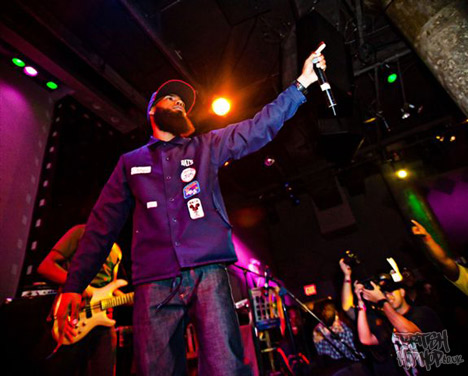
Tell us your view on worldwide hip-hop?
Stalley: Worldwide hip-hop? My opinion on that is, it’s beautiful. Honestly, because there are so many people that are getting into hip-hop – from Australia to Germany to London to France to Canada. It’s just everywhere and I’m so happy to see it expand the way it has and for it to get the type of recognition that it has. It’s beautiful that everyone can have a voice from so many different places and I feel that when we get to hear these artists from these different places, we’re all the same. We all come from the same place, we have struggles, wants and needs and its beautiful to be able to hear it and relate.
We worldwide with it now. Even in America we think hip-hop is just in New York or LA or down South and I’m from middle America. I’m from a small city which only has about 30,000 people but there’s a lot of talent there and people need to realise that.
It’s a bit younger in Europe still so there’s a hunger…
Stalley: Right and I can relate to that too because where I’m from, the Mid West isn’t really looked at as being somewhere where hip-hop is coming from. So I feel like you have to be more hungry or you have to go harder for that respect so I can definitely relate to how it is overseas.
You got plans to come to Europe?
Stalley: I would love to and I think Europe would appreciate the music that I make a little bit more that it’s appreciated here in the United States. One of my goals is to travel Europe and ‘preach the gospel’ so to speak. To be able to share my views and network and work with some artists over there too, because I think we have a lot in common. People wanna hear positive and good vibes and real music.
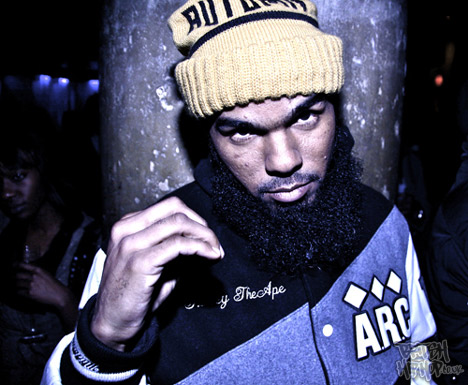
Is the process of sampling and production important for you?
Stalley: It’s important. It’s a lost art. A lot of people put things together, the production, the lyrics, they’re just throwing stuff out to find that catchy tune that people can bounce around to. What I did with the Autobiography is I dig deep in the Bluenote vinyls and in a lot of jazz files and I really created my own sound as far as pacing and looping, adding and taking out different things, because the instrumentation is very important when you’re trying to tell a story or relate a message. Artists back in the day, Curtis Mayfield, Marvin Gaye, the instrumentation and to know that they sat and played every instrument is just amazing to me.
And people don’t take the time to do those things no more. There’s just so much four bar looping and it just gets boring. People are just so lazy and being online makes it that way too because people feel like they have to give the blogs new material every month or every week or every day so we’re taking away from the quality of music.
Should we try and (re)unite the elements?
Stalley: Definitely. That’s a missing art too. That’s the fun of it. People aren’t having fun no more its either someone who’s super serious or someone who’s super… ignorant. There’s no in between and when you had hard rappers like Big Daddy Kane and Rakim, they had people dancing, or they were dancing in the videos and just having fun. That was part of it, whether breaking, b-boying, graffiti, it was all a part of hip-hop and I think that’s what we need to get back to. I see some people starting to involve art into the music and I think that’s a cool thing too because it all imitates itself, whether you’re a painter or an emcee or a vocalist, you play the trumpet or the bass you’re an artist and you’re creating and I think we need to get back to that.
By: Esh | For international hip-hop: http://www.myspace.com/ibmcs
Go check Stalley out on myspace:
